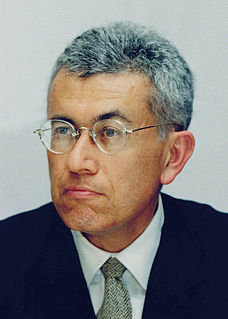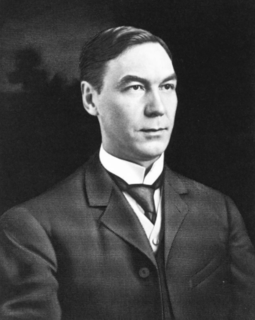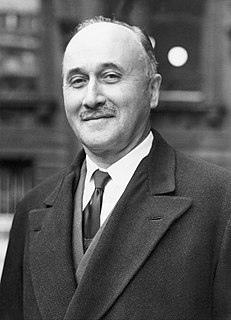A Quote by Roberto Unger
In a world of democracies, the most deserving basis of national differences is that the different states of the world should represent a form of moral specialisation within humanity.
Related Quotes
The developed world should neither shelter nor militarily destabilize authoritarian regimes unless those regimes represent an imminent threat to the national security of other states. Developed states should instead work to create the conditions most favorable for a closed regime's safe passage through the least stable segment of the J curve however and whenever the slide toward instability comes. And developed states should minimize the risk these states pose the rest of the world as their transition toward modernity begins.
The moral case is, people say, "Oh they're not ready for democracy," but that's something someone who lives in a democracy would say about someone who doesn't live in a democracy. Well, if democracy is the highest form of human potential, then it can't be true for us and not for them. But, the practical case is democracies don't invade their neighbors. Democracies don't traffic in child soldiers. Democracies don't harbor terrorists as a state policy. So there's a reason to have more democratic states.
There have been the most terrible, shocking events taking place in the United States of America within the last hour or so... I am afraid we can only imagine the terror and the carnage there and the many, many innocent people who will have lost their lives... It is perpetrated by fanatics who are utterly indifferent to the sanctity of human life and we, the democracies of this world, are going to have to come together to fight it together and eradicate this evil completely from our world.
People come to have different moral beliefs because they have different non-moral beliefs about relevant facts. People are disposed to believe whatever justifies the practices and institutions that benefit them. But I argue that not all moral differences can be explained away in such a fashion. Some of the most profound disagreements come from differences in priority assigned to values such as relationship and community on the one hand, and individual rights and personal autonomy for the individual, on the other hand.
I think that the scienti?c way of looking at the world, and the humanistic way of looking at the world are complementary. There are important differences which should be preserved, and in trying to do away with those differences we would lose something the same way as if we tried to make all religions one religion or all races one race. There is a cultural diversity that's very valuable, and it's valuable to have different ways of looking at the world.
The world without is a reflection of the world within. What appears without is what has been found within. In the world within may be found infinite wisdom, infinite power and infinite supply of all that is necessary, waiting for unfoldment, development and expression. If we recognize these potentialities in the world within they will take form in the world without.
I think there couldn't be a more perfect time with the state of the world than to come together and share an experience - especially an entertainment experience like This Is Us - to say, "You're different, and I'm different, but we all agree that life should be lived. You should be happy, and we're all deserving of joy."
We can work together for a better world with men and women of goodwill, those who radiate the intrinsic goodness of humankind. To do so effectively, the world needs a global ethic with values which give meaning to life experiences and, more than religious institutions and dogmas, sustain the non-material dimension of humanity. Mankind's universal values of love, compassion, solidarity, caring and tolerance should form the basis for this global ethic which should permeate culture, politics, trade, religion and philosophy. It should also permeate the extended family of the United Nations.
In a world of democracies, in a world where the great projects that have set humanity on fire are the projects of the emancipation of individuals from entrenched social division and hierarchy; in such a world individuals must never be puppets or prisoners of the societies or cultures into which they have been born.
I think it's fairly easy to provide a moral defense of capitalism. It has been - over the last 200 years - the underlying basis for enormous increases in productivity and human welfare and rising living standards, particularly in the United States, and in the industrialized nations but in fact, in most parts of the world.
It is within the family that children learn the values that will guide them for the rest of their lives. It is within the family that they form their earliest relationships, learn to communicate with others and interact with the world around them. It is within the family that the notion of human rights becomes a reality lived on a daily basis. If tolerance, respect and equity permeate family life, they will translate into values that shape societies, nations and the world.

































